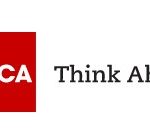Social Accountability International (SAI) announced today that more than 100 facilities are now certified to the SA8000 humane workplace standard. Just three years after the first certificate was issued, there are now 118 facilities employing more than
70,000 workers that have passed independent SA8000 audits.
"SA8000, a truly global standard, is today the best management tool available to ensure social accountability" says Neil Kearney, General Secretary of the International Textile, Garment and Leather Workers Federation and an SAI Advisory Board member.
Facilities have achieved SA8000 certification in 24 countries across Asia, Africa, Europe and the Americas. SA8000 now covers some 25 industries including clothing, footwear, toys, food, and cosmetics.
Leading retailers and brand companies in the US and Europe are using SA8000 to assure consumers and investors that products are made under decent conditions. The list of companies includes Carrefour, the world’s second largest retailer; Toys ‘R’ Us, the worlds leading toy seller; Otto Versand, the largest catalog retailer in the world; Dole, the worlds largest producer of fresh fruits and vegetables; and Kesko, the largest retailer in Finland (see attached list of retailers and brand companies).
"We clearly see the value in using SA8000 and working with suppliers to implement this system," says Tom DeLuca, Vice President for Product Development at Toys ‘R’ Us.
SA8000 covers all the labor rights contained in widely-accepted International Labour Organization conventions, the Universal Declaration of Human Rights and the UN Convention on the Rights of the Child. The nine elements of the standard include:
1. No child labor
2. No forced labor
3. A healthy and safe workplace
4. Freedom of association and right to collective bargaining
5. No discrimination
6. No unjust discipline
7. Limits on working hours
8. Basic needs wage
9. Management systems for long term compliance
SA8000 can be implemented by a wide range of companies. Companies can have individual facilities certified to SA8000 through one of the eight accredited certification bodies or they can participate in the Corporate Involvement Program (CIP). The CIP helps companies evaluate SA8000,
implement the standard in their supply chain and report publicly on implementation progress.
The president of Apparel Avenue, the first SA8000 certified factory in Thailand, found that international customers give increasing pressure to producers to demonstrate their commitment to basic human values in the workplace. He says, "The standard is a way to strengthen and
differentiate Thai companies from other cheap labor countries."
SA8000 is broadly recognized by trade unions, government agencies and non-governmental organizations (NGOs) as one of the strongest workplace standards. Organizations that have recognized SA8000 include the US State Department, the European Commission, the Tuscany Government, the Indian Ministry of Textiles, Business for Social Responsibility and Amnesty International.
According to Richard Howitt, Member of the European Parliament, "SA8000s experience in the field offers valuable lessons to all those working to turn corporate social responsibility words into action." And Morton Winston of Amnesty International USA adds, "SA8000 is the current benchmark in the field of corporate social accountability."
Social Accountability International (SAI) is a charitable human rights organization founded in 1997 and dedicated to improving workplaces and communities around the world by developing and promoting voluntary standards combined with independent verification and public reporting.
SAI brings together key sectors – business, trade unions, government and non-governmental organizations (NGOs) – to create social accountability systems. The first SAI system to be fully operational is Social Accountability 8000 (SA8000), a workplace standard that covers key labor rights and certifies compliance through independent, accredited auditors.



